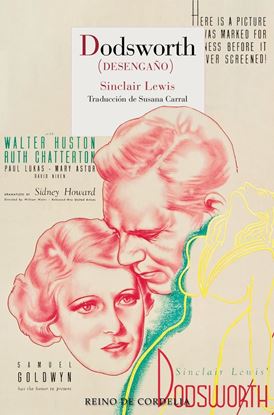

CLIMATE JUSTICE
If you're injuring someone, you should stop—and pay for the damage you've caused. Why, this book asks, does this simple proposition, generally accepted, not apply to climate change? In Climate Justice, a bracing challenge to status-quo thinking on the ethics of climate change, renowned author and legal scholar Cass Sunstein clearly frames what’s at stake and lays out the moral imperative: When it comes to climate change, everyone must be counted equally, regardless of when they live or where they live—which means that wealthy nations, which have disproportionately benefited from greenhouse gas emissions, are obliged to help future generations and people in poor nations that are particularly vulnerable.
1,995
1,496
BEACH READ (SPECIAL EDITION)
Augustus Everett is an acclaimed author of literary fiction. January Andrews writes bestselling romance. When she pens a Happily Ever After, he kills off his entire cast.
They’re polar opposites.
In fact, the only thing they have in common is that for the next three months they’re living in neighboring beach houses, broke and bogged down with writer’s block.
Then one hazy evening, one thing leads to another and they strike a deal designed to force them out of their creative ruts: Augustus will spend the summer writing something happy, and January will pen the next Great American Novel. She’ll take him on field trips worthy of any rom-com montage, and he’ll take her to interview surviving members of a backwoods death cult (obviously). Everyone will finish a book and no one will fall in love. Really.
1,995
1,496
NUCLEAR WAR
Every generation, a journalist has looked deep into the heart of the nuclear military establishment: the technologies, the safeguards, the plans, and the risks. These investigations are vital to how we understand the world we really live in—where one nuclear missile will beget one in return, and where the choreography of the world’s end requires massive decisions made on seconds’ notice with information that is only as good as the intelligence we have.
Pulitzer Prize finalist Annie Jacobsen’s Nuclear War: A Scenario explores this ticking-clock scenario, based on dozens of exclusive new interviews with military and civilian experts who have built the weapons, have been privy to the response plans, and have been responsible for those decisions should they have needed to be made. Nuclear War: A Scenario examines the handful of minutes after a nuclear missile launch. It is essential reading, and unlike any other book in its depth and urgency.
1,995
1,496
DODSWORTH (DESENGAÑO)
Inédita hasta ahora en español, pese a que está considerada una de las grandes novelas del premio Nobel de Literatura Sinclair Lewis, "Dodsworth" enfrenta los modales y la moral de los estadounidenses con la de los europeos durante el primer tercio del siglo XX. Ambientada en la Europa de entreguerras, narra el viaje por Europa de Sam Dodsworth, un empresario diseñador de automóviles, y su esposa, Fran Voelker, seducida por la frivolidad de la decadente aristocracia del antiguo continente, lo que comienza a separar al matrimonio. A lo largo de un itinerario por Francia, Gran Bretaña, Italia, Austria, Hungría, Alemania e incluso España, la pareja se va distanciando paulatinamente. Él se convierte en un turista solitario, mientras ella se involucra cada vez más en la ajetreada vida social de las grandes familias, que ocultan su ruina entre bailes de salón. Llevada al cine en 1936 por William Wyler, con Walter Huston y Ruth Chatterton como protagonistas, la película logró siete nominaciones a los Óscars.
1,995
1,496
ARTIFICIAL. UNA HISTORIA DE AMOR
¿Qué nos une con el pasado de nuestra familia?
Según Amy Kurzweil, conocer a alguien es como conocer un lenguaje. A través de un elaborado proceso de escritura que fluctúa entre el presente y el pasado, en este visionario cómic Kurzweil recoge la historia de tres generaciones de su familia, unidas por el amor, el arte y la inteligencia artificial en una búsqueda que quiere trascender los límites de la vida y desafiar los límites del tiempo.
1,995
1,496
CURSO DE LITERATURA INGLESA Y NORTEAMER.
ntre abril y septiembre de 1966, los lunes, de manera quincenal, Borges tomó en Constitución el tren a Mar del Plata para dar clases como profesor de la cátedra de Literatura inglesa y norteamericana de la Universidad Católica local, que luego sería provincial y, más adelante, nacional. Allí lo esperaban, expectantes, los estudiantes del curso, menos de una decena, que se organizaron para grabar y transcribir sus clases. A ese público "cautivo" que conformaría la primera camada de profesores locales en Letras, se sumaba otro de oyentes entusiastas. En este libro, basado en esas transcripciones, la personalísima perspectiva de Borges sobre la literatura cristaliza en su original e iluminadora visión de Chaucer, Langland, More, Shakespeare, Milton, Swift, Johnson, Gibbon, Macpherson, Wordsworth, Carlyle, Dickens, Browning, Stevenson, Shaw, Kipling, Chesterton, entre otros. En todos los casos resuena el registro vital de su voz en el aula, con su estilo, cadencia y humor. Al mismo tiempo, opera una constante: su modo de leer único, didáctico e innovador, que sitúa a autores, textos y contextos en clave de fragmentos del mosaico infinito de la cultura universal.
1,995
1,496














